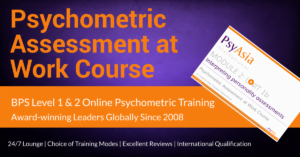In Module 3 of our 10-week, Free Online Psychometric Testing Course, we consider the topic of Psychometric Test Reliability. This Module will be released on 21 October, 2015 to those registered for our Psychometrics MOOC. Below is an outline of what is to be covered.
Summary of Module 3: Psychometric Test Reliability
So far, we understand what a psychometric test is. We also have learned how important it is to consider the role requirements, and thus know what we need to assess before even starting to research which psychometric tests are available to us.
In this Module, we now start to look at the major technical properties of psychometric tests. The particular property introduced in this Module is reliability. This tells us about whether a test is making consistent measurements of whatever it is supposed to measure. In the Module, we take this definition further and explain what to look out for in terms of test reliability, and what the different types of reliability mean.
Towards the end of the Module we will go through some test manuals, looking for and evaluating evidence for test reliability.
Learning Outcomes for Module 3
– Understand the basics of psychometric test reliability
– Understand the basics of correlation as it applies to psychometric test reliability
– Understand the difference between reliability and validity
– Understand why reliability is a critical component of the test and how it relates to validity
– Understand the difference between internal consistency, test-retest and parallel forms reliability
– Know how to look for and evaluate different types of psychometric test reliability
Next Module in our Psychometrics MOOC
In our next post, we will cover Module 4: Psychometric test error and confidence.
Register for Free Psychometric Test Training Course
Join Learners from all over the world and network/interact with them and our facilitator in our Learner Forums, Discussions and Live Sessions between 7 October and the end of December, 2015.



